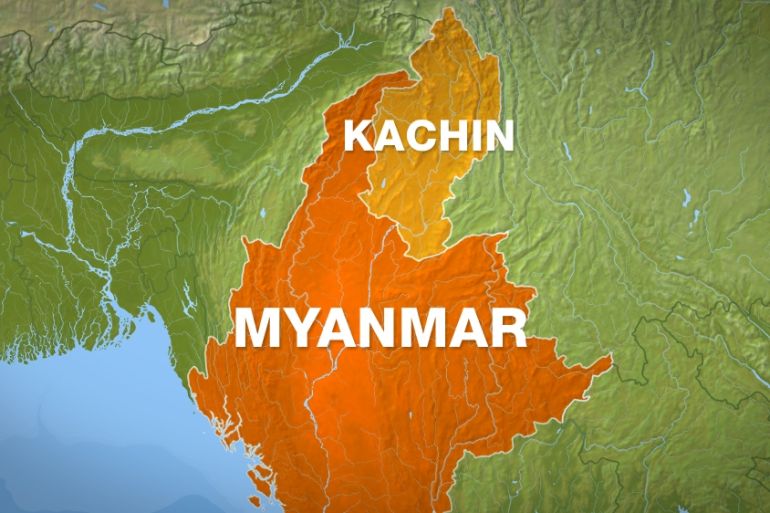More than 50 feared dead after landslide at Myanmar jade mine
Dozens missing in one of the worst disasters to strike the country’s shadowy jade industry in years.

More than 50 people were feared dead after a landslide in northern Myanmar engulfed jade miners while they were sleeping, the latest deadly accident in a notoriously dangerous industry.
The accident took place near Maw Wun Kalay village in Hpakant township at about 11:30pm local time (17:00 GMT) on Monday when a mud-filter pond, situated in an old mining site, collapsed.
Keep reading
list of 4 itemsPhotos: Dubai reels from flood chaos as record rains lash UAE
Dubai submerged in floods as UAE gets over a year’s worth of rain in hours
Heavy rains kill 18 in Oman as flash floods lash UAE
A total of 54 staff from two private companies were buried under a mound of mining waste along with 40 machines and vehicles, said Tin Soe, a local official.
“They won’t survive. It is not possible because they are buried under mud,” Tin Soe told Reuters News Agency by phone. “It is very difficult to retrieve the bodies.”
Kyaw Swa Aung, the township’s administrator, told the Anadolu news agency a search operation was ongoing. “Three dead bodies have been recovered from the mud,” he said.
Dozens die each year in landslides caused by jade mining, a poorly regulated industry rife with corruption and sandwiched between the country’s borders with China and India.
At least 20 people have been killed so far this year in collapses and landslides at mining sites, according to the Hpakant township office.
Centre of jade mining
Most of the victims were identified as internal migrant workers who scavenge jade or pieces of the precious stones left over from company mining operations.
The area is mined by the Myanmar Thura Gems and Shwe Nagar Koe Kaung companies.
Myanmar Thura Gems director Hla Soe Oo told the AFP news agency that he was on his way to the site and had no further details.
Hpakant area is the centre of the country’s jade mining industry and produces some of the best-quality jade in the world.
According to the environmental advocacy group, Global Witness, jade production in Myanmar was worth about $31bn in 2014.
The industry is dominated by companies and businessmen linked to leaders of the previous military government.
|
|
Prized by China
The open jade mines in Hpakant have turned the remote area into a vast moonscape-like terrain.
Fatal landslides in the area are common with victims often from impoverished ethnic communities looking for scraps left behind by big firms.
A major collapse in November 2015 left more than 100 dead.
The jade industry is largely driven by insatiable demand from neighbouring China, where the translucent green gemstone has long been prized.
Northern Myanmar’s abundant natural resources, including jade, timber, gold and amber, help finance both sides of a decades-long civil war between ethnic Kachin rebels and the military.
The fight to control the mines and the revenues they bring frequently traps local civilians in the middle.
A 17-year ceasefire broke down in 2011, and since then more than 100,000 people have been displaced by fighting, some multiple times.
On coming to power in 2016, civilian leader Aung San Suu Kyi promised to make the peace process with the country’s myriad armed groups her top priority – a pledge that has yet to yield significant results.